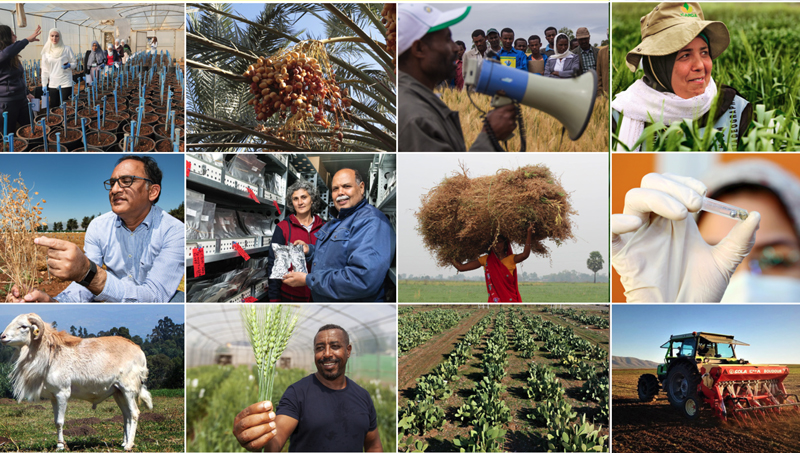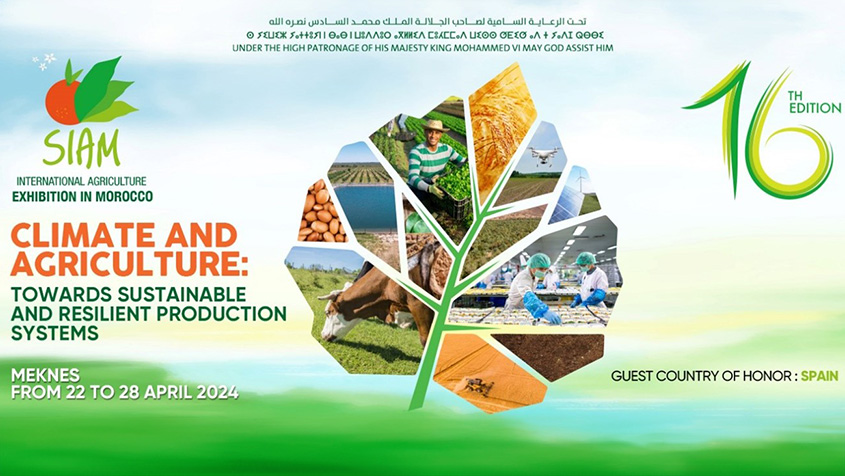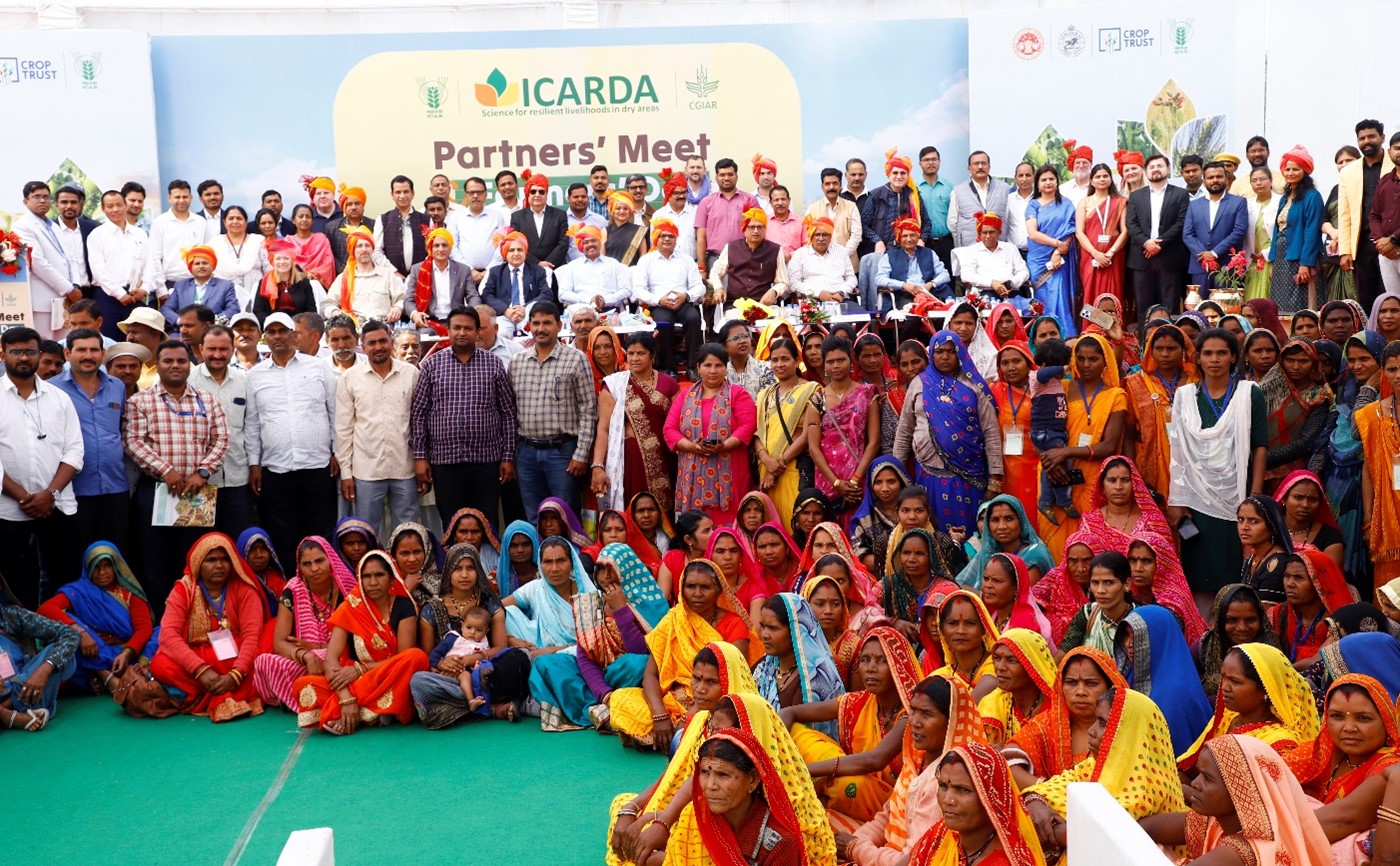Partner-led Breeding Research Priorities
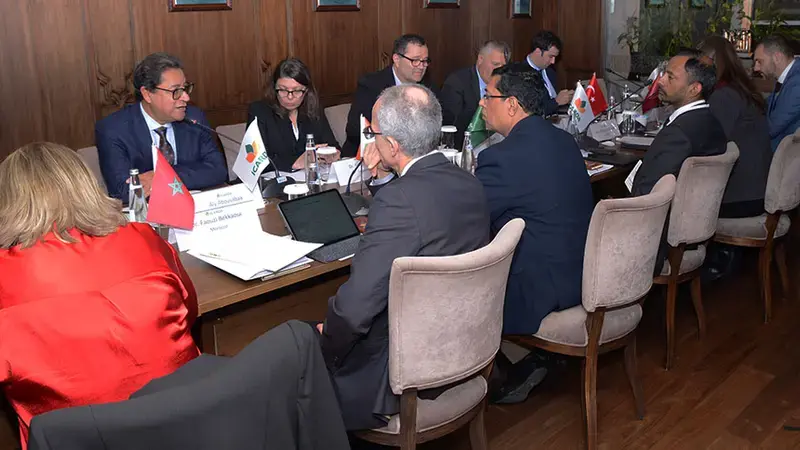
13 – 15 December 2022, Istanbul, Turkey: A CGIAR delegation led by Mr. Aly Abousabaa, ICARDA Director General and CGIAR Regional Director CWANA, recently concluded a series of high-level consultations with National Agricultural Research and Extension Systems (NARES) representatives to harness guidance on priorities for the partner-led ICARDA breeding research agenda, including variety promotion under the Fragility to Resilience CWANA and Seed equal initiatives until 2030.
Through regular engagement with stakeholders, CGIAR's collaborative approach ensures that its research agendas align with the needs and demands of the countries and communities it serves. In Istanbul, ICARDA's leadership and representatives of CGIAR's Accelerated Breeding Initiative gathered with leaders of 14 national partners active in assessing and releasing ICARDA's climate-smart germplasm. The NARES leadership defined their priorities through three days of frank and constructive discussion. A co-signed Aide, Memoire will steer ICARDA's ground-breaking and partner-led breeding portfolio over the next seven years.
Depending on national priorities, demographic trends in consumption, ecosystems, and farming approaches, each delegation expressed clear research priorities for their countries. Barley, bread wheat, Kabuli chickpea, durum wheat, and lentil remain the most important crops for the region, while grass pea and faba bean are critical for some countries. North African delegates indicated a preference for ICARDA's three cereals (barley, durum wheat, and bread wheat), and those from West Asia preferred a combination of cereals and grain legumes. South Asia prioritized grain legumes above all, and Central Asian countries spotlighted bread, durum wheat, and specific grain legumes. All delegates underscored interest in ICARDA's crop improvement program to develop a capability for nitrogen-fixing forages, improve resilience, favor livestock health, and reduce fertilizer dependency. Cactus breeding was also of interest to several partners located in harsher and drier regions.
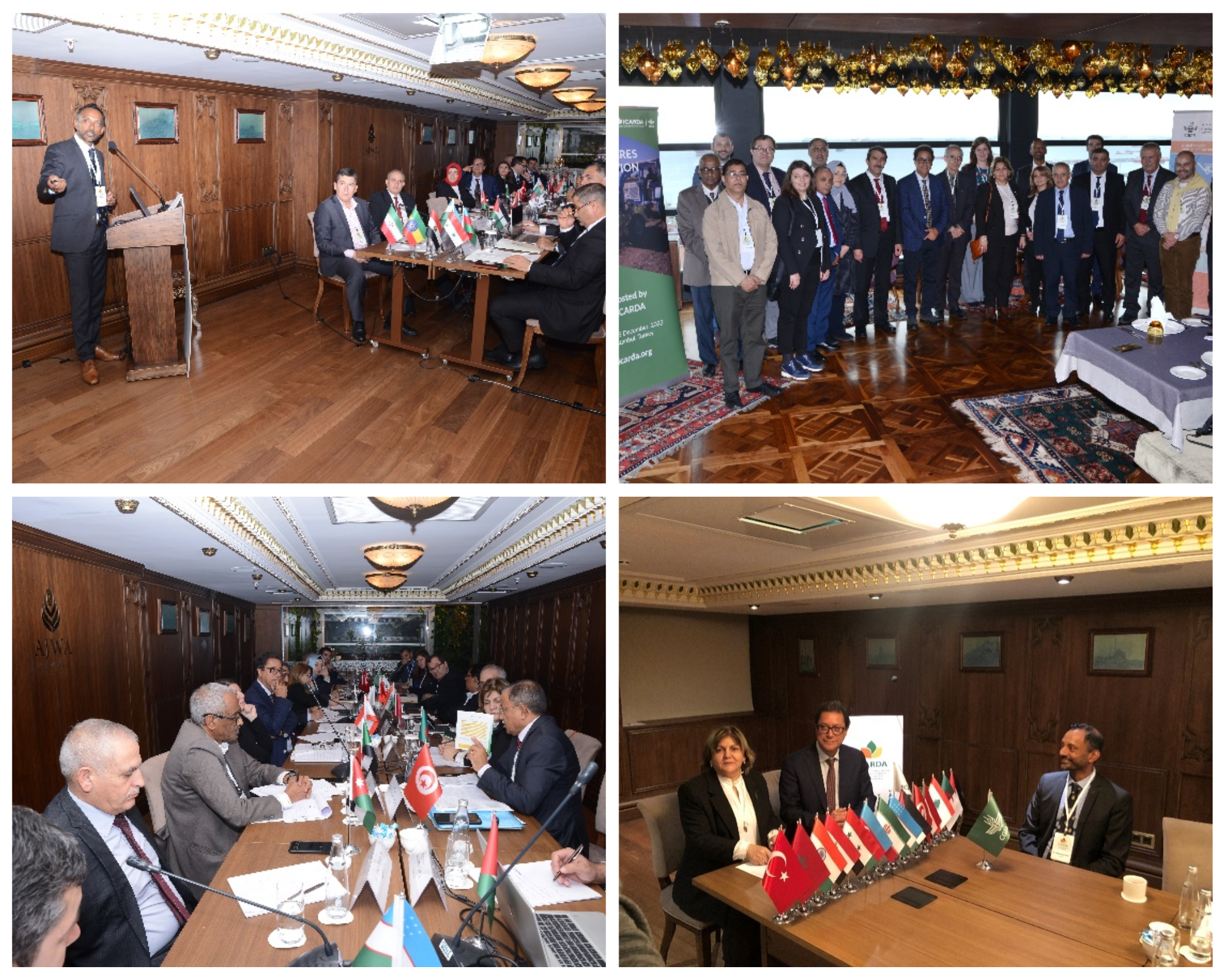
NARES delegates brought to the table benefits to CGIAR's genetic innovation agenda through their unique expertise and knowledge in crops specific to their country and how their research facilities can enrich evidence-based crop breeding science. In that sense, ICARDA builds on the OneCGIAR vision of a research agenda with more robust interconnections with NARES, seeking win-win partnerships around the sharing of yield trials, facilities, and capacities.
"These important workshops are innovation platforms that allow researchers from every institution to integrate our collective science horizontally through knowledge and data exchange, and vertically through sharing facilities, funding, and logistics. The objective is a robust underlying policy framework, supported by agile, practical tools that fit the operational context." – Aly Abousabaa, CGIAR Regional Director CWANA and ICARDA Director General
The workshops demonstrated the importance of global agrifood-systems research that ICARDA places on a region that has for decades experienced the climate shocks that are now sweeping into more developed northern countries. Equally, with climate change remaining the most critical variant for successful food production in the CWANA region, NARES delegates cemented their continuing confidence in ICARDA's vital mission to deliver climate-smart crop varieties capable of other's withstanding intensifying stresses such as severe heat and water scarcity.
All parties come away from the workshops stronger and more optimistic about the resonant criticisms shared that enrich the focus on delivery goals and with an unwavering commitment to raising the stakes in collaboration for the delivery of concrete outcomes, technological solutions, and research innovations that improve the livelihoods of farmers and communities in CWANA's dry regions and beyond.
---
The attendees at the workshop included Mr. Aly Abousabaa, ICARDA Director General and CGIAR Regional Director for Central and West Asia and North Africa (CWANA); Dr. Michael Baum, ICARDA Deputy Director General, and CWANA-F2R lead; Dr. Biswanath Das, WP3 lead of Accelerated Breeding Initiative (ABI); M.me Mary Margaret Mc Rae, ICARDA Director of Partnerships and Resource Mobilization; NARES representatives from Algeria, Azerbaijan, Egypt, India, Jordan, Lebanon, Morocco, Palestine, Sudan, Syria, Sudan, Tunisia, and Uzbekistan; Dr. Filippo M Bassi, ICARDA Genetic Innovation Principal Scientist; Dr. Miguel Sanchez-Garcia, ICARDA Scientist and lead of Breeding Modernization.
Attendees and institution by country:
|
Country |
Institution |
Representative |
|
Algeria |
CNCC - Centre National de Contrôle et de Certification des Semences et Plants |
Mellah Zakia |
|
Azerbaijan |
ARICH - Azerbaijan Research Institute of Crop Husbandry |
Faiq Khudae |
| Egypt | ARC - Agriculture Research Center | Mohamed Soliman |
|
India |
ICAR - Indian Council of Agricultural Research |
Sanjeev Gupta |
|
Jordan |
NARC - National Agricultural Research Center |
Naem Mazahrih |
|
Lebanon |
LARI - Lebanese Agricultural Research Institute |
Rola El Amil |
|
Morocco |
INRA - Institut National de la Recherche Agronomique |
Faouzi Bekkaoui |
|
Palestine |
NARC - National Agricultural Research Center |
Samer Jarrar |
|
Sudan |
ARC - Agriculture Research Corporation |
Abdel Moneim Taha |
| Syria | GCSAR - General Commission for Scientific Agricultural Research | Majeda Mofleh |
|
Tunisia |
INRAT - National Institute of Agricultural Research of Tunisia |
Mondher Ben Salem |
|
Türkiye |
TAGEM - General Directorate of Agricultural Research and Policies |
Metin Türker |
|
Uzbekistan |
UzRIGR – Uzbek Research Institute of Genetic Resources |
Safar Alikulov |

